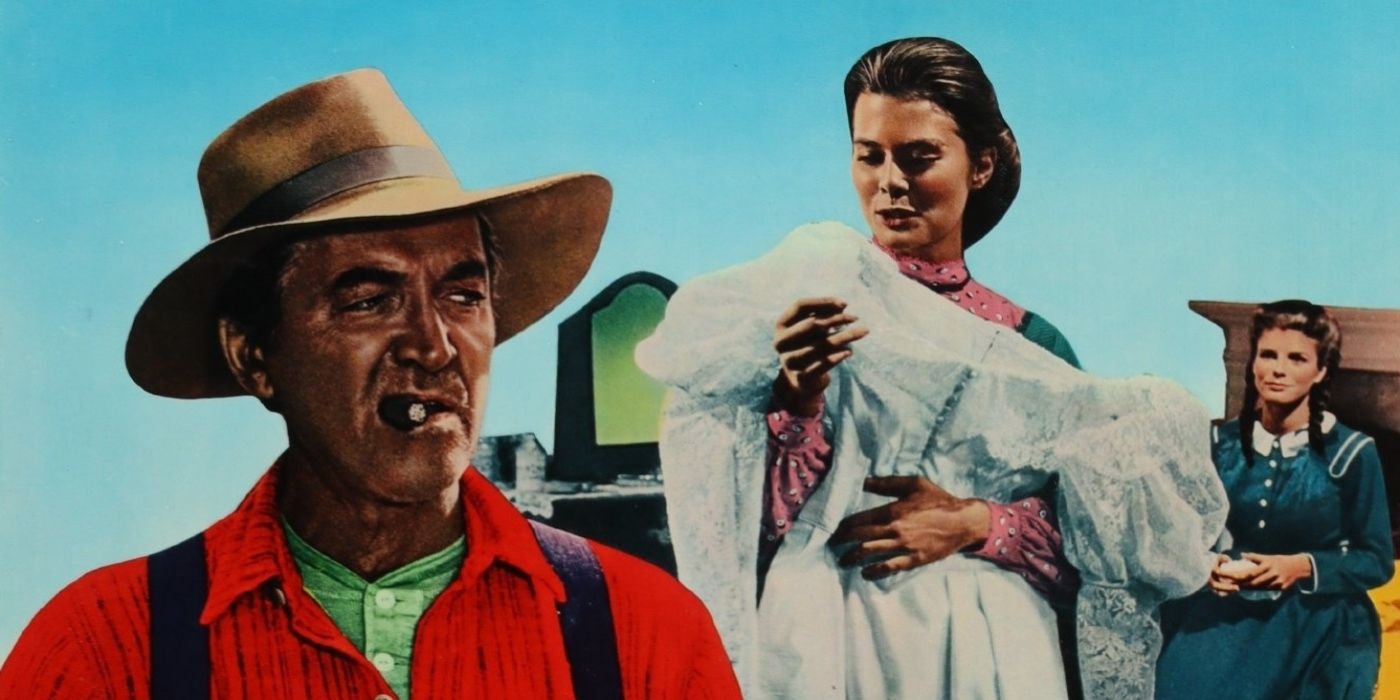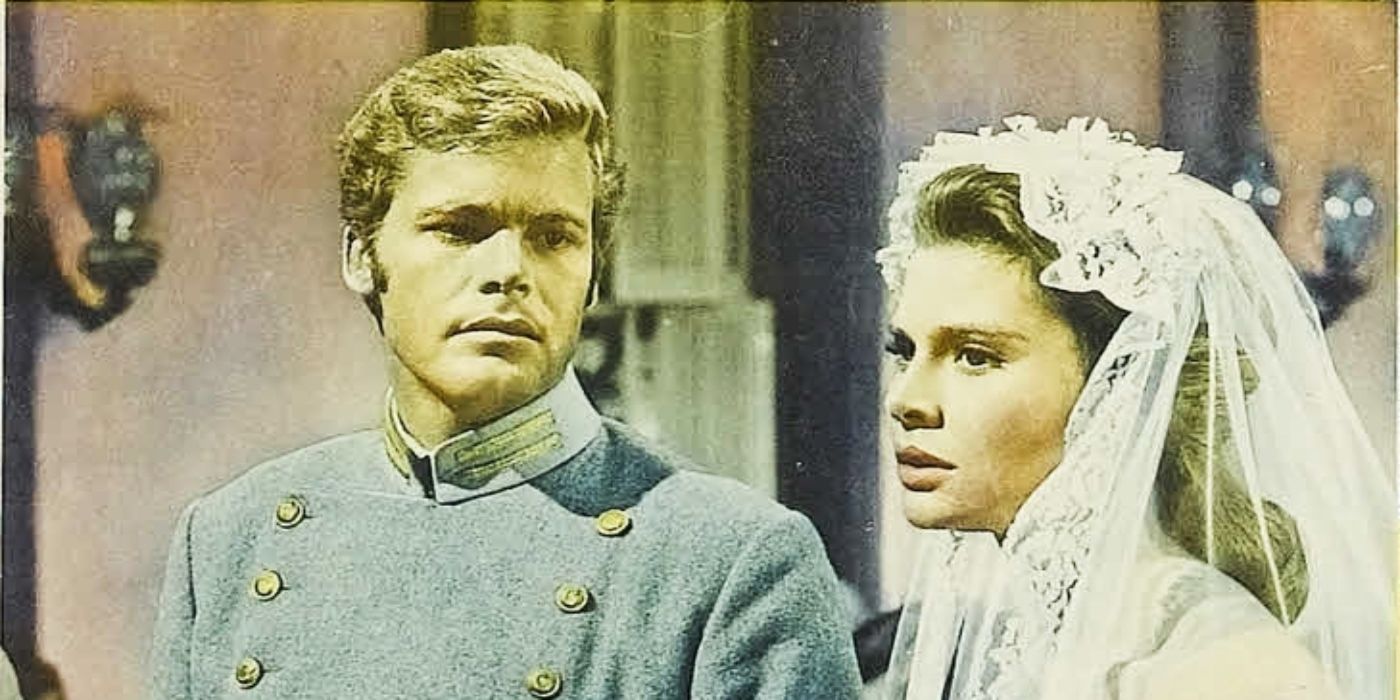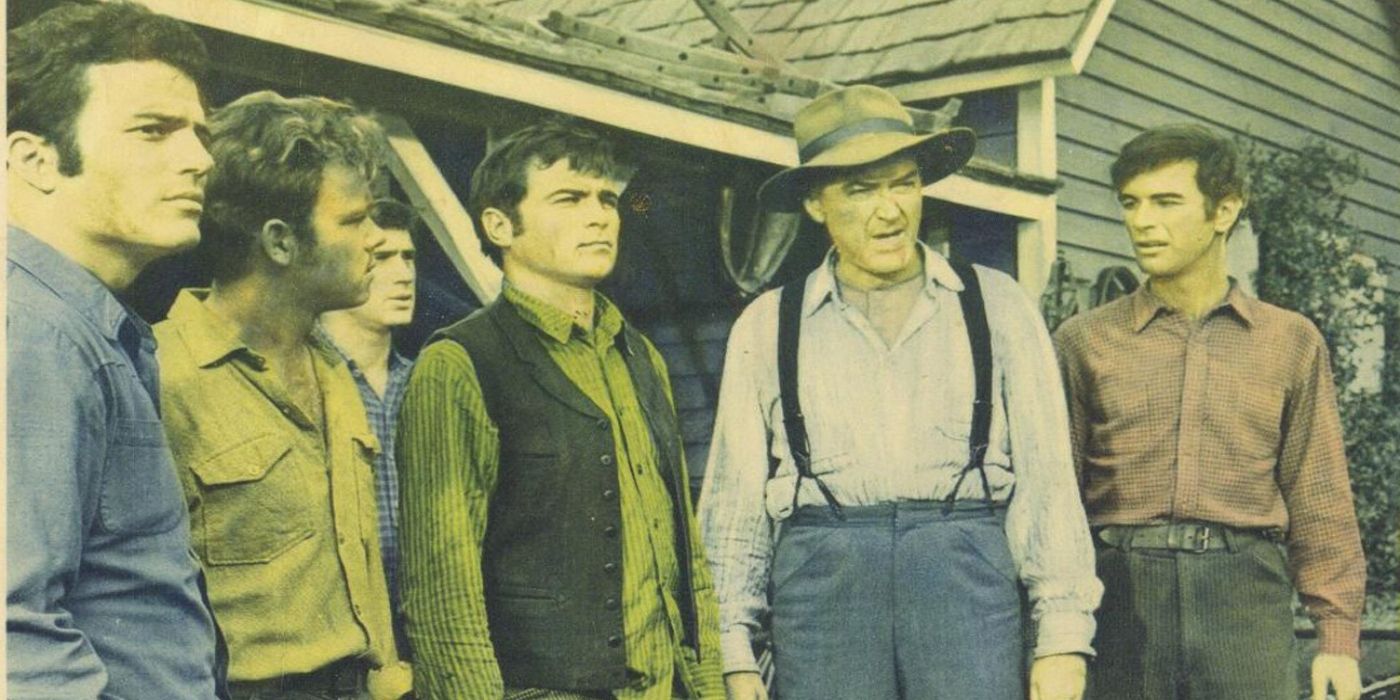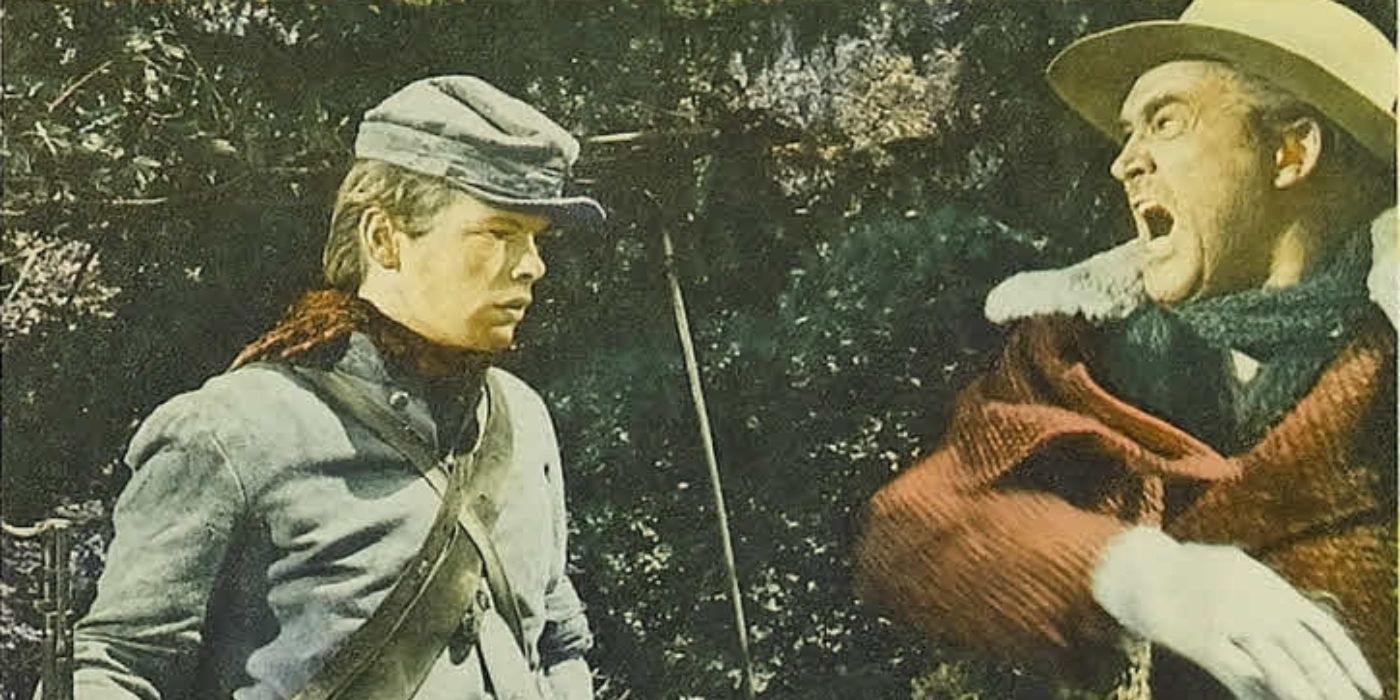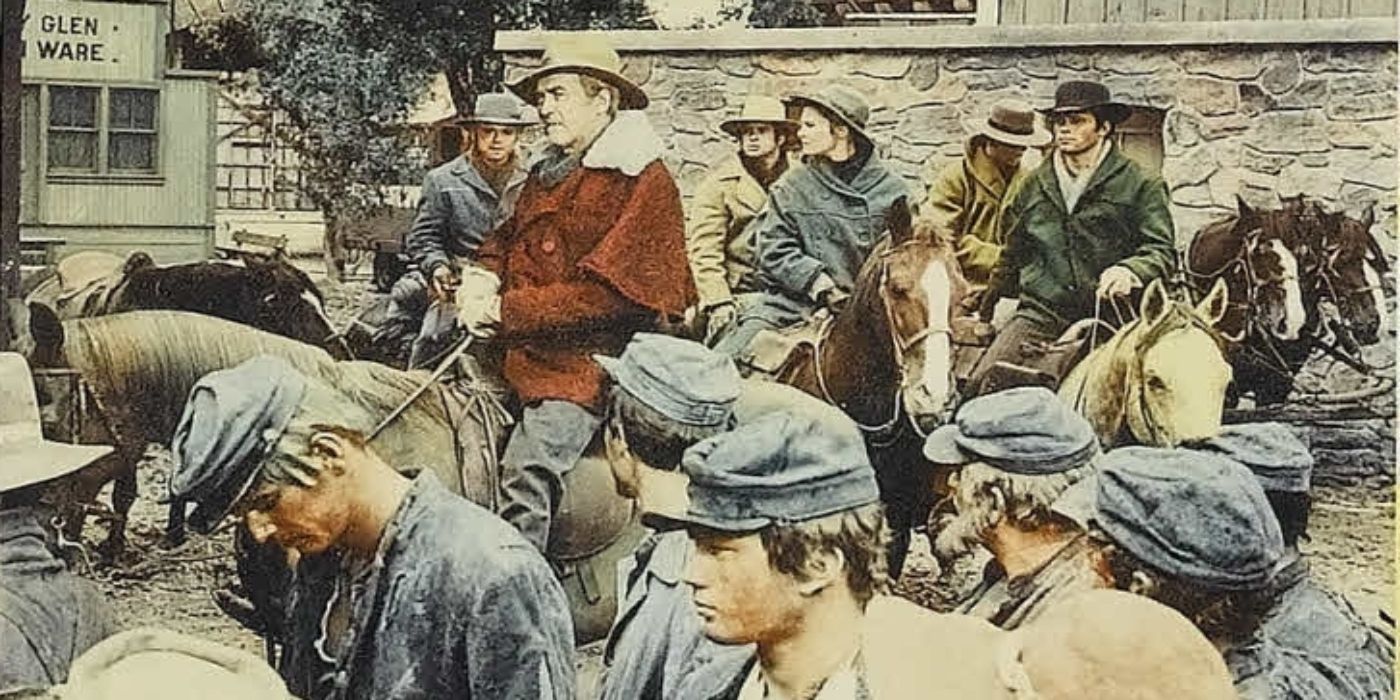Jimmy Stewart Gave Us a Different Kind of War Movie Icon in This Classic
July 12, 2024
(One of my all-time favorite films of all time. Powerful performances, terrific cast, and superb storyline. This is the true, untold story behind the wrenching divisive conflict of the War for Coercive National Unification – popularly known as the “Civil War.”)
Jimmy Stewart Gave Us a Different Kind of War Movie Icon in This Classic
THE BIG PICTURE
- Shenandoah showcases Stewart’s versatile acting in a Civil War drama, combining Western elements with dark themes.
- Shenandoah refrains from taking sides in the conflict.
- Stewart’s character in Shenandoah remains committed to non-violence, standing out from traditional Western heroes.
If there’s one star from the Golden Age of Hollywood who is distinct enough to carry nearly any role while never straying too far from his particular brand, it’s Jimmy Stewart. Despite his works in classics like It’s A Wonderful Life and Rear Window, the movie star was most often known for his role in Westerns like The Man Who Shot Liberty Valance and Broken Arrow. But sometimes Stewart shifted genres ever so slightly, so that, on the surface, you might think you were watching a Western when in reality you were enjoying a dark historical drama. No, we’re not talking about Strategic Air Command of the Cold War era, but rather his Civil War epic Shenandoah. If you haven’t seen this picture, brace yourself for one of Stewart’s best.
Jimmy Stewart Stands His Ground in ‘Shenandoah’
Shenandoah follows Charlie Anderson (Stewart) and his large family of mostly boys and one daughter (as well as a daughter-in-law) living in the Shenandoah Valley in the Commonwealth of Virginia. Set in 1864, near the end of the American Civil War, the Andersons find themselves surrounded as the Union encroaches from the North and the Confederacy from the South. Despite the danger, Charlie and his boys refuse to join or aid either band of soldiers, which often means they find themselves in trouble with both sides. As this is happening, Charlie’s youngest son, Boy Anderson (Phillip Alford), is taken prisoner by the Union Army when they mistake him for a Confederate due to his grey garb and hat. This sets Charlie off, and he and his boys (and his daughter Jennie, played by Rosemary Forsyth) set out to find him.
An age-old tale of both rescue and revenge, Shenandoah refuses to pick sides in the conflict. While the Andersons inadvertently help the Confederates on more than one occasion (and it’s worth noting that Jennie eventually marries one), they just as strongly oppose slavery, and are happy when local boy Gabriel (Eugene Jackson, Jr.) is pronounced “free.” But that doesn’t mean that the Andersons are free from any loyalties at all. Charlie is ultimately loyal to his children and the memory of his deceased wife, whom he promised on her deathbed that he would raise their children as good Christians. Despite that, their tardiness to Sunday worship is a consistent struggle, as is the old adage, “Love thy neighbor.” But in Charlie’s eyes, part of raising his young adult children in the faith means forsaking all worldly conflict, which comes back to bite him pretty quickly.
To Charlie, there are actually three sides to the American Civil War. There’s the Union and the Confederacy, both of which offer him significant compensation for his services, and then there’s his family, whom he remains devoted to above all others. Since he lords over his children with gentle wisdom, honor, and respect, they obey their father implicitly, even when they have their questions. (Jennie is the exception here, as she rides with her father and brothers to rescue Boy.) His own armed unit, the Anderson family ride into battle only for the sake of their own, though their failure to pick a side in the war doesn’t sit well with those they encounter along the way. While most war movies, and especially those depicting the Civil War, offer some sympathy to one side or another, Shenandoah refuses to do so, hoping that the audience will be able to make up their minds for themselves who they ought to support.
Jimmy Stewart’s ‘Shenandoah’ Has a Brutal Ending
But we cannot fully escape the world around us, and Charlie Anderson learns that to varying degrees. Initially, he forbids his sons to take arms and join either the Union or Confederacy, though eventually allows them the option to go and fight if they so choose. He struggles to let his daughter marry a soldier, yet gives Sam (Doug McClure of The Virginian fame) his blessing anyhow, even going so far as to prepare their honeymoon suite once they’re reunited. Near the end of the film, he loses a son to a Confederate sentry, only to refuse to kill the sixteen-year-old soldier, hoping instead that the sentry might one day spare someone else’s son in return. Charlie Anderson is a man who wants more than anything to remain neutral in America’s bloodiest war, yet he cannot seem to make up his mind about what exactly that means.
The paradoxical actions of Charlie Anderson speak strangely to the time at which Shenandoah was made. In 1965, the Vietnam War was only halfway over, and wouldn’t end officially until the fall of Saigon a decade later. While the United States didn’t remain neutral during this conflict (the U.S. had supported South Vietnam while the communists in China and the Soviet Union aided the North) Charlie Anderson’s clear-cut isolationist stance concerning the North and the South fails miserably. Instead of losing just one son (who is returned to him by the end of the film), he loses two, as well as his daughter-in-law Ann (Katharine Ross), who leaves behind an infant daughter. But just because Charlie’s pseudo-isolationism fails, don’t let that fool you into thinking that Shenandoah is a pro-war picture. It certainly doesn’t glorify the conflict.
If anything, this drama speaks clearly about the horrors of war, and how refusing to fight might just as well come back to haunt you in the end. Like Charlie, Shenandoah refuses to take a clear stance on the international conflict at the time. Instead, it opts to highlight the fallout of war in general, perhaps in hopes that those in the audience might continue to resist the overseas conflict. Of course, this interpretation only goes so far when you consider that it’s Charlie’s refusal to engage in the conflict initially that gets so many members of his family killed. On the other hand, had he and his sons remained home, the scavengers who killed James (Patrick Wayne) and Ann wouldn’t have made it very far in the first place. It’s possible that, had Charlie stuck to his isolationist guns and disavowed the war entirely (even after losing his son to the Union), his family may never have been broken up in the first place.
‘Shenandoah’ Wants to Be a Western
Stewart’s character isn’t a man of violence, nor is he easily taken up by it. He refuses to kill the young Confederate who reminds him of Boy, and even when burning the Union train earlier in the picture, he’s sure to keep everyone clear of the tracks. This is unlike many of the gunslingers and Western stars who would continue into the ’60s and ’70s, who shoot to kill without so much as batting an eye. Young guns like Clint Eastwood had yet to take over the silver screen, and Stewart proves here, just as he has in other pictures before, that violence isn’t always the answer. That doesn’t stop Shenandoah from being violent at times, and some of the deaths (particularly that of Patrick Wayne’s James Anderson) can be brutal, but it does further emphasize the film’s ultimate message: war always ends in tragedy, no matter who wins.

